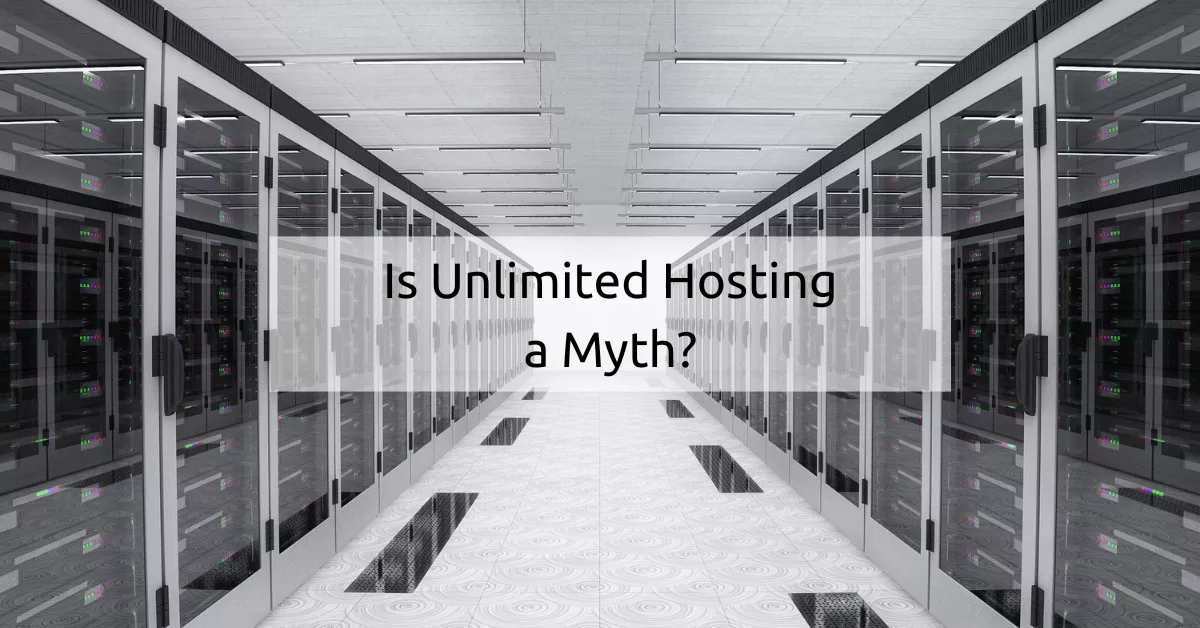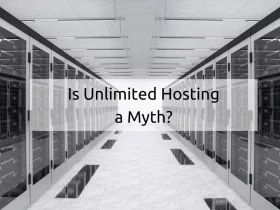The truth about “Unlimited Hosting”

When it comes to hosting plans, you may have come across the term “unlimited” being thrown around quite a bit. It sounds great, doesn’t it? Unlimited storage, unlimited bandwidth, unlimited everything! But the truth is, unlimited hosting is not always truly unlimited. Before you sign up for an unlimited hosting plan, it’s important to understand what it really means.
Some hosting companies use overselling to provide unlimited resources, while others implement fair usage policies to ensure no single customer is using excessive resources. In this post, we’re going to dive deep into what “unlimited” really means, and how you should be choosing your hosting plan.
Understanding the meaning of Unlimited Hosting
First of all, let’s talk about what “unlimited” hosting really means. When a hosting company advertises an “unlimited” plan, it typically means that you can use as much storage and bandwidth as you need, as long as it falls within the acceptable usage policy (AUP) of the hosting company. Every good hosting provider will publish this policy on their website which will outline what types of activities are considered acceptable use of the resources, and what types of activities are not. For example, a hosting company may not allow you to use the hosting services for backup/storage space or consumption of an unusually high number of resources over long periods of time.
The limitations of “Unlimited” hosting
The problem with “unlimited” hosting is that it’s not truly unlimited. Even high performance and capacity servers used by Hosting Companies have a finite amount of resources, and if they allow one customer to use an unlimited amount of resources, it will affect the resources available to other customers. To prevent this, hosting companies will often impose limits on the amount of resources that can be used, even on an “unlimited” plan to provide an equitable service and experience to all. These limits may not be clearly stated in the advertising, but they will be outlined in the AUP.
Why do hosting companies advertise “Unlimited Hosting”
So why do hosting companies advertise “unlimited” plans if they’re not truly unlimited? The answer is simple: it’s a marketing tactic. “Unlimited” plans are often more expensive than plans with clearly stated limits, and the idea of having access to unlimited resources is appealing to many customers. It’s not illegal for hosting companies to advertise “unlimited” plans, but it can be considered misleading if the limits are not clearly stated.
Having said that, it’s important to note that even though “unlimited” plans may not be truly without limits, they are often more than enough for most average websites that require a shared hosting environment. For most small businesses or personal websites, the resources provided by an “unlimited” plan will be more than sufficient for their needs. The key is to understand the fair usage policy of the hosting company and make sure that the plan you choose aligns with your website’s expected traffic and storage requirements. Additionally, even though it’s rare but if you do happen to exceed the fair usage policy, many hosting companies will work with you to upgrade to a more suitable plan that can accommodate your needs.
How you should choose your hosting plan?
Now that we’ve established that “unlimited” hosting is not truly unlimited, let’s talk about how you should be choosing your hosting plan. The most important thing to consider is your needs. If you’re planning on running a small website with minimal traffic, you may be able to get away with a shared hosting plan with clearly stated limits. But if you’re planning on running a large website with a lot of traffic or require more flexibility or specific requirements, you may need to opt for a VPS or dedicated hosting plan, which will provide you with more resources.
Another important consideration is customer service. No matter how good a hosting company’s AUP is, you’re bound to run into issues at some point. It’s important to choose a hosting company with a good reputation for customer service, so that you can get help when you need it.
In conclusion, unlimited hosting is a myth. Hosting companies can’t practically provide limitless resources, and when they advertise as such, it should always be accompanied by an AUP (Acceptable Usage Policy). When choosing a hosting plan, it’s important to consider your needs and customer service. The most important thing is to not just go for the “Unlimited” plan, but to look at the resources that you’ll need and the customer service the host is offering. Always read the fine print and make sure you understand the terms of service before signing up for any hosting plan. Remember that a little bit of research and due diligence can save you a lot of headaches in the long run.








Leave a Reply